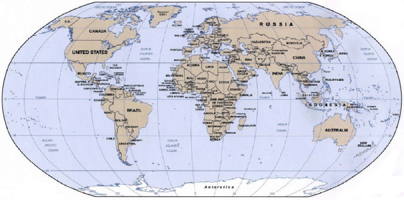
|
The Society of Folk Dance Historians (SFDH)
Art and Science of Dance Ethnology
[
Home |
About |
Encyclopedia | CLICK AN IMAGE TO ENLARGE |

|
DEFINING THE DISCIPLINE
 While not exactly new, the academic discipline of Dance Ethnology appears to be rarely recognized by academia and even by those who claim to study it. No less worthy of academic pursuit than its sister discipline of ethnomusicology, the dance discipline rarely appears in any academic discussions or even in college and university curriculums.
While not exactly new, the academic discipline of Dance Ethnology appears to be rarely recognized by academia and even by those who claim to study it. No less worthy of academic pursuit than its sister discipline of ethnomusicology, the dance discipline rarely appears in any academic discussions or even in college and university curriculums.
The dance that is the subject of ethnological study exists in a complex world of human behavior, traditions, and relationships. It is a product of that environment and it can tell us much about the motivations and cultural personality of its creators, if only we begin to probe into the story the dance tells us.
The field of ethnology is well known, well respected, and well established. Ethnologists have been on the government's payroll for over a century, braving the elements and even the hostility and reluctance of their subjects to record those elements of their culture that shed light on the discipline's body of knowledge. It is a holistic approach to culture, gleaning every possible bit of information on the subjects' lives, beliefs, and traditions. From this body of work, we can select certain skills for our own study, adding to it our own splendid experience with the dance.
An examination of the academic areas involved in our study is in order. This list is only a starting point for us and others may certainly wish to add more:
DANCE TECHNIQUE, HUMAN ANATOMY, AND KINESTHETICS
Just as an ethnomusicologist must be an accomplished musician, at least within the ethnic groups under study, the dance ethnologist must be able to dance – more than that, have the ability to adapt and mimic the subject's dance movement and character. This is at the very center of our study. If one cannot duplicate various dance movements and cannot differentiate between the dance of one people and another, material collected will be "contaminated" and much of its value will be lost.
MUSIC
Though a high level of musicianship is not a mandatory skill – many dance ethnologists do not – it is important to have a working knowledge of music theory, rhythms, and instruments. The ability to learn and recreate the subjects' music is a most desirable talent.
ANTHROPOLOGY
The umbrella discipline for ethnology, anthropology provides the guidelines and standards for identifying subjects, conducting, recording, and analyzing research and presenting those results for peer review.
GEOGRAPHY
A closer relative to anthropology than might be assumed; geography – both physical and cultural – provides the information of physical and cultural forces which shape the accepted behavior of the subject. It brings into the formula such factors as climate, topography, livelihood, foreign contact, migrations, natural resources, and a host of other influences.
PSYCHOLOGY
Every society has a generally acknowledged range of acceptable behavior. The differences between one society and another – Spain and Bulgaria, for instance – exist for a number of reasons. Behavior is a response to a stimulus (weather, natural resources, technology, etc.) and it is utterly important to understand how that behavior affects the dance.
The ability to perceive the underlying, unspoken attitudes toward the environment is imperative to any study of the dance. More important than "how," "why" should be at the core of any ethnic dance examination.
HISTORY
Equally important is the long series of historical events which have shaped the society of both today and the recent past. Relationships with neighboring societies strongly influence cultural personalities and behaviors. The ethnologist must know of the subject's past to understand the present.
LANGUAGE
A working knowledge of the subjects' language is a major advantage in gaining the subjects' confidence and trust, especially if conducting original field research. At the very least, it is valuable to be able to recreate the words related to the dance out of respect for the subject.
These are but a few approaches that must be applied to ethnic dance research. If one is to teach this wonderful dance form, one needs to be able to impart this knowledge and appreciation of the dance to the students.
And if Dance Ethnology is to receive the recognition and acceptance it deserves, this is only the beginning.
DOCUMENT
- Richard Duree, an article.
Used with permission of the author.
This page © 2018 by Ron Houston.
Please do not copy any part of this page without including this copyright notice.
Please do not copy small portions out of context.
Please do not copy large portions without permission from Ron Houston.